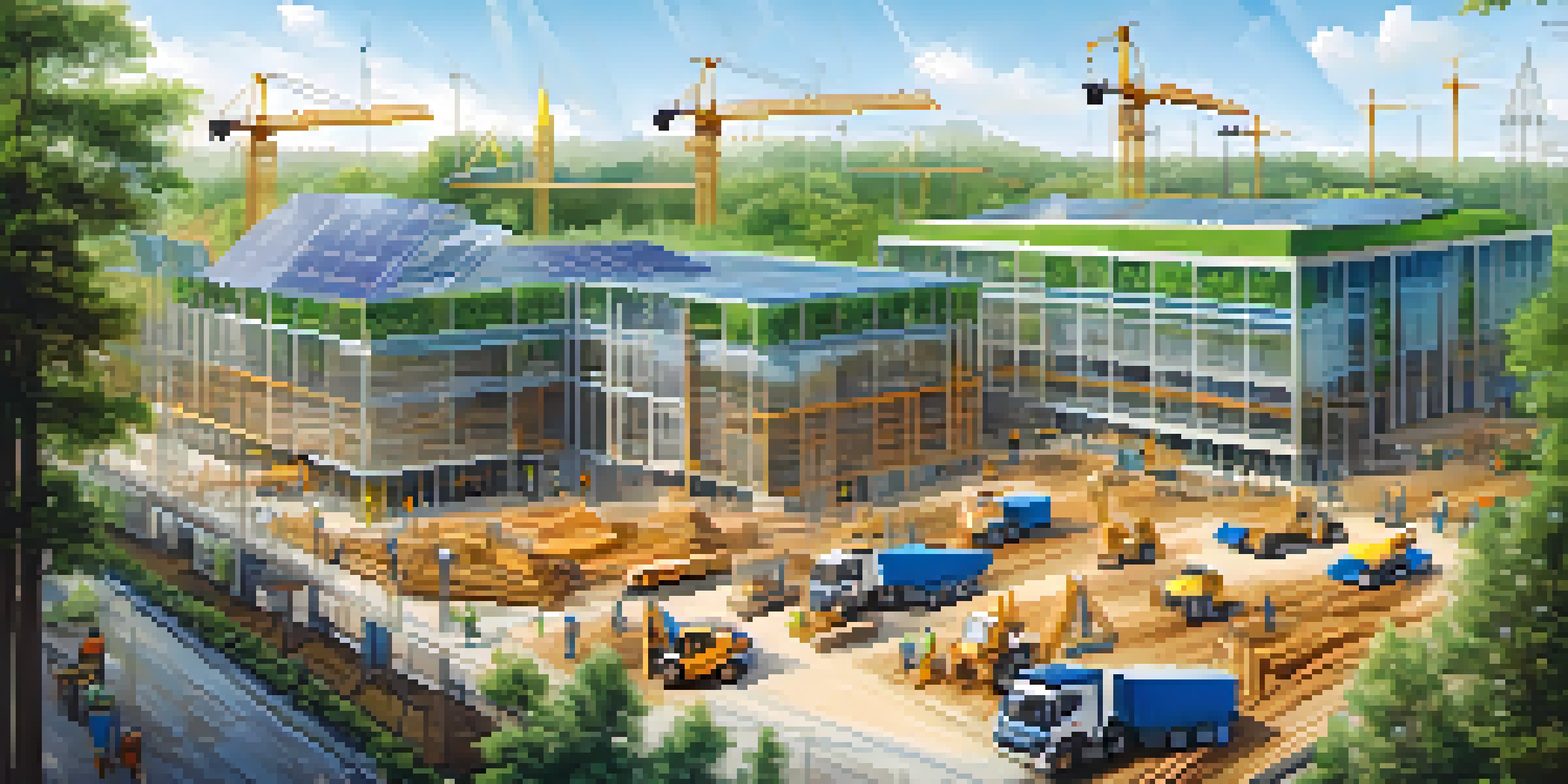Exploring the Use of Green Certifications in Construction Projects

Understanding Green Certifications in Construction
Green certifications are official recognitions awarded to buildings and construction projects that meet specific environmental standards. These standards often focus on energy efficiency, sustainable materials, and overall environmental impact. By earning these certifications, projects can demonstrate their commitment to sustainability, which is increasingly important in today's eco-conscious society.
The Importance of Sustainability in Construction
Sustainability in construction is crucial for reducing the industry's environmental footprint. With buildings accounting for a significant amount of energy consumption and waste, embracing sustainable practices is essential. Green certifications help ensure that construction projects prioritize resource efficiency, which not only benefits the planet but also enhances the quality of life for future generations.
Green Certifications Enhance Sustainability
Green certifications recognize construction projects for meeting environmental standards, promoting energy efficiency and sustainable materials.
Popular Green Certifications in the Industry
Several prominent green certifications are widely recognized in the construction industry, including LEED (Leadership in Energy and Environmental Design) and BREEAM (Building Research Establishment Environmental Assessment Method). Each certification has its own criteria and focuses, but all aim to promote sustainable building practices. Understanding these certifications can help stakeholders choose the right path for their projects.
Benefits of Green Certifications for Projects
Obtaining green certifications can provide numerous benefits for construction projects, such as increased marketability and reduced operating costs. Buildings that meet these standards often consume less energy and water, leading to lower utility bills. Additionally, certified projects may qualify for tax incentives or grants, making them financially attractive for investors and developers.
Financial Benefits of Certification
Obtaining green certifications can lead to reduced operating costs and potential tax incentives, making projects financially attractive.
Challenges in Achieving Green Certifications
While the benefits are clear, there are challenges associated with obtaining green certifications. The process can be time-consuming and may require additional upfront costs for sustainable materials and technologies. Moreover, navigating the complexities of certification requirements can be daunting for project teams, necessitating a clear understanding of the guidelines and processes involved.
The Role of Technology in Certification Processes
Technology plays a significant role in simplifying the green certification process. Advanced software tools help project managers track compliance with sustainability standards and streamline documentation. By leveraging technology, construction teams can enhance collaboration, improve efficiency, and ultimately achieve their green certification goals more effectively.
Technology Streamlines Certification Process
Advanced technology simplifies the green certification process, improving collaboration and efficiency for construction teams.
Future Trends in Green Certifications
As the push for sustainability continues, we can expect to see evolving trends in green certifications. New technologies and innovative practices will likely reshape the standards and criteria used to assess projects. Moreover, as awareness grows, more clients and developers will prioritize sustainability, making green certifications a vital component of future construction endeavors.
Conclusion: The Path Forward for Sustainable Construction
In conclusion, green certifications are essential tools for promoting sustainability in construction. They not only help reduce environmental impact but also offer tangible benefits for stakeholders. As the industry moves forward, embracing these certifications will be crucial for creating a more sustainable future in construction.